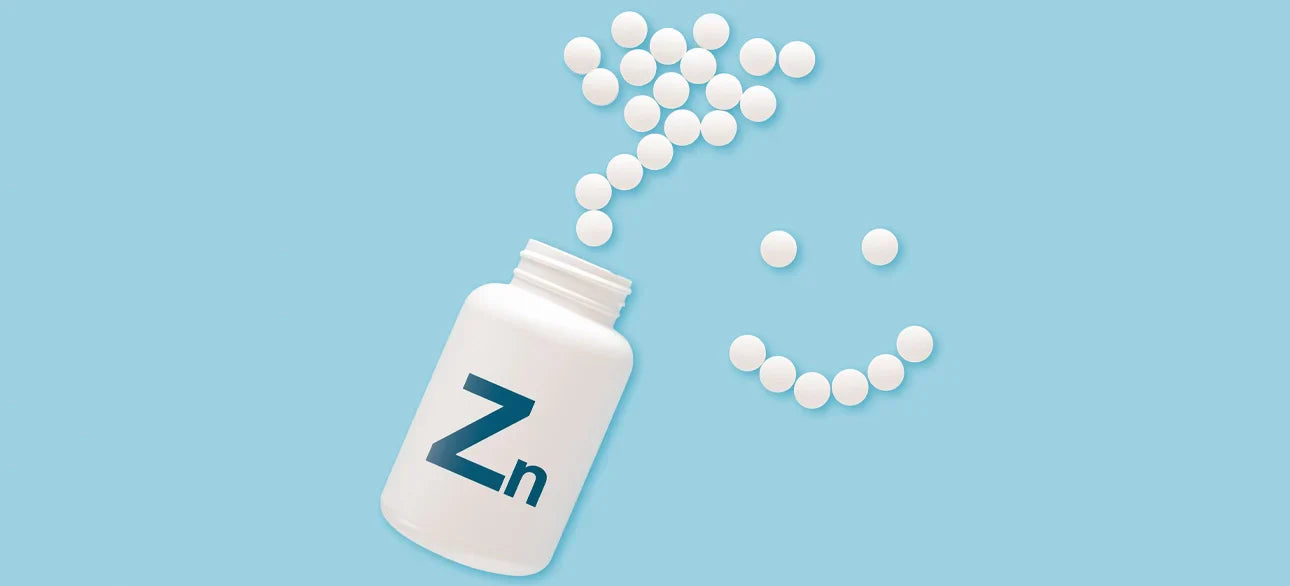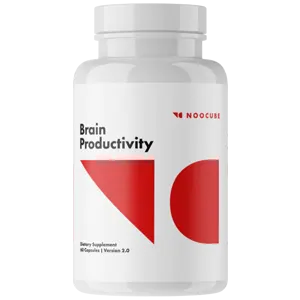What Vitamins Should I Take Every Day?
Find out the essential vitamins you should take daily to support your immune system, energy levels, and overall health. Learn how to create a simple, effective daily vitamin routine.
Advertiser Disclosure: We independently select all the products. If you click through links we provide, we may earn a commission.

We often wonder what are the best vitamins to take to maintain optimal health. This is because Vitamins and minerals, considered micronutrients, are crucial for forming the body’s essential foundations. They contribute to proper functioning of the immune system, making energy and fixing damaged cells. They help bring about many biochemical reactions that support our regular bodily functions.
According to Oregon State University, millions of Americans are missing at least one vitamin, and vitamin D, magnesium, and B vitamins make up some of the biggest shortfalls.
This is when concerned adults might consider routine vitamin intake. Let's find the right balance of supplements that fit your body and enable you to stay healthy in the long term.
Top Essential Vitamins to Take Every Day
 Top Essential Vitamins to Take Every Day
Top Essential Vitamins to Take Every Day
Vitamin D
The sunshine vitamin is what people usually call Vitamin D, making it the top recommended vitamin to include in your diet. Vitamin D is necessary for getting calcium into the body, building bones, supporting the immune system and regulating mood, and it’s also a key ingredient in Cognitive Support Supplement. If a person doesn’t have enough vitamin D, they can experience bone pain, their muscles might become weak and they are at higher risk for infections. Recommended intake of Vitamin D in adults is 600-800 IU every day, with higher amounts needed for people who aren’t exposed to much sun or have darker skin.
Vitamin B12
B12 needs your extra attention; you should definitely take it. Vitamin B12 is necessary for good brain and nerve function, as well as for forming new red blood cells. A lack of certain nutrients can cause people to feel tired, forgetful and anemic. The highest risk of deficiency is found in vegetarians, vegans, adults aged 50 or above, and those with digestive health conditions. 2.4 mcg of vitamin B12 daily is enough for most adults. But what is mcg in vitamins? It's a unit of measurement that stands for microgram, or one-millionth of a gram, commonly used to indicate small but vital nutrient amounts.
Vitamin C
Daily supplements are useful when you don’t have enough variety in your diet, vitamin C is one worth considering. With this antioxidant, your immune system becomes stronger, it helps produce collagen and supports iron absorption. It also helps cells stay healthy and supports the body’s ability to heal wounds. While most people require 75-90 mg of Vitamin C each day, smokers should get an extra 35 mg to fight free radicals in their bodies.
Vitamin A
Vitamin A helps protect vision, boosts the immune system, and supports good skin health. There are two kinds of vitamin A: one from animals and one from plants. Lack of essential nutrients in your diet may lead to night blindness and weaker immunity. The daily recommended amount of Vitamin A for an adult is between 700-900 mcg, though too much over 3,000 mcg can be dangerous, so regulating your dose matters.
Vitamin E
Among the other vitamins to take daily, vitamin E works as a strong antioxidant by defending cells from harm caused by free radicals. It helps the heart, strengthens immune defenses, and contributes to healthy-looking skin. Vitamin E is also a key component in the best supplements for brain health. Adults should have around 15 mg of Vitamin E a day, found in nuts, seeds, and vegetable oils. Taking high amounts of supplements can sometimes interfere with regular medicines.
According to Mark Thompson, MD
Vitamin E is a powerful antioxidant that not only supports cardiovascular and immune health but also plays a significant role in protecting brain cells from oxidative stress. Incorporating it wisely through diet or supplements can benefit overall wellness, but always consider potential interactions with medications and consult a healthcare professional.
Crucial Minerals You Shouldn't Skip
Calcium
Your starting point should be calcium when you think 'What multivitamin is best for me?' It strengthens bones, teeth, nerves, and helps muscles work. Each day, adults must have Calcium between 1000 and 1200 mg, but older adults usually need more. Not getting enough calcium weakens bones and makes osteoporosis a greater possibility. These best sources have dairy, fortified plant-based milks, lots of leafy vegetables, and nutritional supplements.
Magnesium
Checking your multivitamin to see if it contains magnesium is wise. Because it is used in hundreds of enzymatic reactions, this mineral deserves careful attention. Magnesium is important for controlling muscles and nerves, blood sugar levels, and blood pressure. Taking adaptogens helps with producing energy and reducing stress. People over the age of 18 should eat 310-420 mg of Magnesium daily. Not getting enough of a mineral can bring on muscle cramps, tiredness, and a bad temper. People in this type of diet rely on nuts, seeds, grains, and leafy vegetables.
Iron
Prior to picking a multivitamin, talk to your doctor and ask if more iron is worth including in your diet. Iron is needed for red blood cells to carry oxygen from the lungs to all the body’s tissues. Those groups—women in their childbearing years, pregnant women, and frequent blood donors—often require supplements. Both men and postmenopausal women usually need less calcium. RDA values Iron between 8-11 mg, depending on age and gender.
Zinc
Did you know that Zinc is present in most multivitamin supplements? That is because this essential mineral is needed for a healthy immune system, wound healing, DNA synthesis, and cell division. It enables the body to gain strength, develop as it should, and taste food properly. The daily amount of zinc adults should get is 8-11 mg. Not having enough vitamin C can reduce the body’s defense system and lengthen how long it takes a wound to heal. Examples of food are oysters, red meat, poultry, beans, nuts and dairy products.
Personalized Vitamin Needs: What Influences Your Daily Intake?
Age-specific needs
The vitamins you should take depend on how old you are. Growth and development in children depend on nutrients. Adults keep their health in balance by eating a well-rounded diet. Declining absorption in seniors usually leads to them needing extra vitamin D and B12. Folate, iron, and calcium are needed in extra amounts by pregnant women for both the baby’s and their own health.
Dietary restrictions
Thinking about what you eat is important when picking out multivitamins. Taking B12 supplements is common for vegetarians and vegans, who don’t get much of it from their diets. Choosing gluten-free diets sometimes means absorbing fewer nutrients and those who avoid dairy may have to use other sources of calcium. Since every diet is different, the vitamins your body needs can be different too.
Lifestyle factors
The choice of essential vitamins depends greatly on your lifestyle as well. Additional vitamin C and antioxidants are important for smokers. Drinking alcohol can drop levels of certain B vitamins in the body. If you get less sun, you need more vitamin D. Sports participants need to increase their B vitamin and mineral levels to feel energized and recover. Stress speeds up the use of nutrients which highlights why you need supplements.
How to Choose the Best Daily Vitamin Supplement
- Read labels carefully: When you are considering a multivitamin, start by examining ingredient lists. Look for supplements with clearly listed nutrients and appropriate dosages that meet but don't drastically exceed daily requirements.
- Check quality assurance: When looking for multivitamin products, seek third-party testing certifications like USP or NSF. These ensure the product contains what it claims and meets purity standards.
- Consider nutrient forms: The best supplements use bioavailable forms like methylated B vitamins and chelated minerals that your body can easily absorb and utilize.
- Evaluate special formulations: Different what multivitamin should I take options exist for men, women, and seniors with formulations tailored to specific demographic needs.
- Avoid unnecessary additives: Quality supplements minimize artificial colors, flavors, preservatives, and fillers that don't contribute to nutritional value.
- Choose appropriate delivery form: Consider whether tablets, capsules, liquids, or gummies work best for your lifestyle and digestive capabilities.
- Review potential interactions: Before starting supplements, check for interactions with medications you currently take or health conditions you manage.
Potential Risks: Avoiding Overconsumption and Interactions
Signs and dangers of vitamin overdose
You should take vitamins daily, but it's important to understand that more isn't always better. Under normal circumstances, excess vitamins A, D, E or K are stored in the body and could become toxic.
Signs might be nausea, headaches and dizziness, while in more extreme instances, the effects can be on the liver, nerves, or affecting the buildup of calcium in soft tissues.
Interactions with medications and chronic conditions
- Blood thinners like warfarin can interact dangerously with vitamin K supplements
- Antibiotics may be less effective when taken with calcium or magnesium
- Thyroid medications require spacing from calcium and iron supplements
- Vitamin E may increase bleeding risk with certain medications
- Individuals with kidney disease should exercise caution with magnesium supplements
- Iron supplements can worsen conditions like hemochromatosis and certain inflammatory disorders
- Vitamin D requires careful monitoring in those with sarcoidosis or other granulomatous diseases
Why consulting healthcare professionals is critical before supplementing
Talking to a professional is very important before deciding on a multivitamin. Special diagnostic blood work is used to find out about possible deficiencies. They have all the details about your diseases and the drugs you are taking, which may interact with supplements.
Some vitamins can interact in harmful ways, so it's important to have professional guidance. Regular blood checks help doctors know how to change their advice as your body’s needs shift.
Natural Food Sources: Getting Vitamins from Your Diet
Top nutrient-dense foods rich in essential vitamins and minerals
Vitamin A:
- Sweet potatoes, carrots, spinach, kale
- Liver, eggs, cheese, fatty fish
Vitamin B Complex:
- Whole grains, legumes, nutritional yeast
- Meat, eggs, dairy, leafy greens
Vitamin C:
- Citrus fruits, bell peppers, strawberries
- Broccoli, kiwi, tomatoes
Vitamin D:
- Fatty fish (salmon, mackerel), egg yolks
- Mushrooms exposed to UV light
Vitamin E:
- Nuts, seeds, avocados, olive oil
- Spinach, broccoli
Calcium:
- Dairy products, fortified plant milks
- Sardines, tofu, leafy greens
Iron:
- Red meat, organ meats, shellfish
- Beans, lentils, spinach, pumpkin seeds
Magnesium:
- Dark chocolate, avocados, nuts
- Legumes, tofu, whole grains
Zinc:
- Oysters, red meat, poultry
- Beans, nuts, seeds
Benefits of whole foods over supplements
When considering what are the best vitamins to take, remember that whole foods provide nutrients in natural proportions with cofactors that enhance absorption.
“It’s a lot easier for the body to absorb nutrients through food rather than a pill, and there’s less concern of overconsumption”, says Lauren Haggerty, clinical pharmacist at Johns Hopkins Medicine.
Foods contain fiber, antioxidants, and phytochemicals not found in supplements. The body typically absorbs nutrients from food more efficiently than from pills. Whole foods also provide balanced nutrition without the risk of isolated nutrient excess.
Tips to maximize vitamin absorption through diet
- Combine vitamin C foods with iron-rich plant foods to enhance iron absorption
- Include healthy fats when eating foods with fat-soluble vitamins (A, D, E, K)
- Lightly cook certain vegetables to increase nutrient bioavailability
- Soak or sprout legumes and grains to reduce compounds that inhibit mineral absorption
- Space calcium-rich foods away from iron supplements or iron-rich meals
- Add fermented foods to meals to enhance B vitamin synthesis
- Include protein with most meals to support nutrient transport and utilization
When and How to Take Your Vitamins for Maximum Benefit
Best times of day to take certain vitamins
When people don’t take vitamins the proper way, they don’t see improvement.
B vitamins are often best taken in the morning as they support energy metabolism and may interfere with sleep if taken late in the day.
Fat-soluble vitamins (A, D, E, K) can be taken any time of day with a meal containing fat.
Magnesium and calcium are often beneficial in the evening, as they support relaxation and sleep quality.
Whether to take with food or on an empty stomach
When determining should you take vitamins Daily, consider timing with meals:
- Take fat-soluble vitamins (A, D, E, K) with meals containing fat for optimal absorption
- Iron is best absorbed on an empty stomach but may cause digestive upset (take with small amount of food if needed)
- Calcium supplements should be taken with meals to reduce risk of kidney stones
- Probiotics work best when taken 30 minutes before meals
- Vitamin C can be taken any time, but may cause mild stomach upset on an empty stomach
Combining vitamins and minerals for enhanced absorption
- Vitamin D enhances calcium absorption – take them together
- Vitamin C improves iron absorption – combine when taking iron supplements
- Zinc and copper compete for absorption – take them at different times
- Calcium can interfere with iron, zinc, and magnesium absorption – separate by 2 hours
- B vitamins often work synergistically – taking a B complex can be more effective than individual B vitamins
- Vitamin K2 helps direct calcium to bones rather than arteries – beneficial when taking calcium and vitamin D. The benefits of vitamin K2 and D3 work synergistically, supporting bone health, improving calcium absorption, and promoting overall cardiovascular wellness.
Conclusion
So, these were the best vitamins to take. Even so, it’s important to remember that these nutritional needs can change with your diet, age, lifestyle and any health conditions you might have.
This led us to our next question: whether you should take a single vitamin or should take a multivitamin supplement. This again depends on your deficiencies.
A properly designed supplement works to prevent mild shortfalls, yet it doesn’t match the value of a healthy diet. Before adding supplements, improve your diet by relying on whole foods.
Paying attention to your blood results and working with your healthcare provider allows your supplement routine to keep up with your requirements.
Personalized support ensures you are not missing nutrients or having too many, keeping you in good health for years to come






























